Diminishing Carbon Footprints Will Require Learning From Our Mistakes And Understanding The Importance Of Saving The Oceans.
Learning What We've Done Is Not Enough
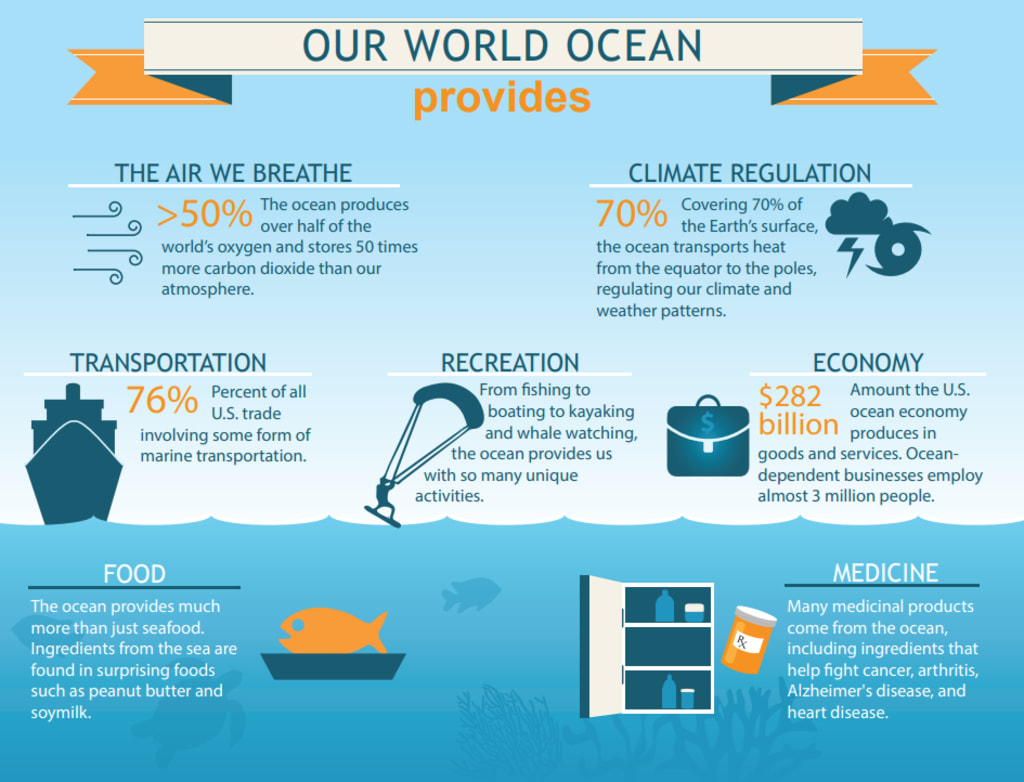
If you want to know who the enemy is, get off your chair, your couch, or out from behind your desk. Follow these simple instructions. Go to any of your restrooms, bathrooms, or lavatories. Find your sink. Turn on the water, splash some on your face, and then look in the mirror. You've now found what should be public enemy number one. Sure, maybe it's not you personally. If you have asked yourself, what am I doing to be less wasteful, to conserve resources, to conserve energy, and not unnecessarily pollute the environment and the answer was everything you could do, then you personally are off the hook? Now that we've told that lie, look around the house, the office, the garage, and decide whether or not you've truly become an eco-warrior.
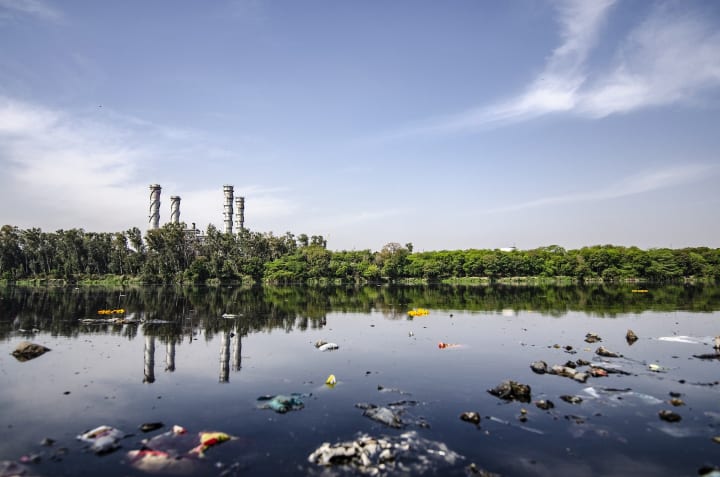
The term eco-warrior is a self-description for an environmental activist that adopts a more "hands-on" approach to save a plot of land. Why limit it to just a plot of land? Eco-warriors are also saving the environment, which includes land, sea, and air. Are you an eco-warrior? Or are you the enemy? The answer is probably a little bit of both because there's so much that we can do that we don't take the time to accomplish. That's where change comes in my friends. And, it's that change that we all must now concentrate on should we wish to avoid the inevitable and coming disaster that is the effect of mans' damage to the planet. I won't preach, well not as much as one might think, but there are changes that we can all make that will at least get us off the sidelines and into what may be mankind's greatest endeavor.

Step outside, take a deep breath. Unless you're in one of the already heavily polluted cities on the planet, of which there are many where the air quality is poor, that felt pretty good. Even those of you in places that the air quality is already getting hard to tolerate because of heavy industrial pollutants being pumped into the sky, imagine for a moment, it gets worse. The ocean provides more than 50% of the world's oxygen. Let's say that again, THE OCEAN PROVIDES MORE THAN 50% OF THE WORLD'S OXYGEN. Our oceans also store 50 times more carbon dioxide than our atmosphere.
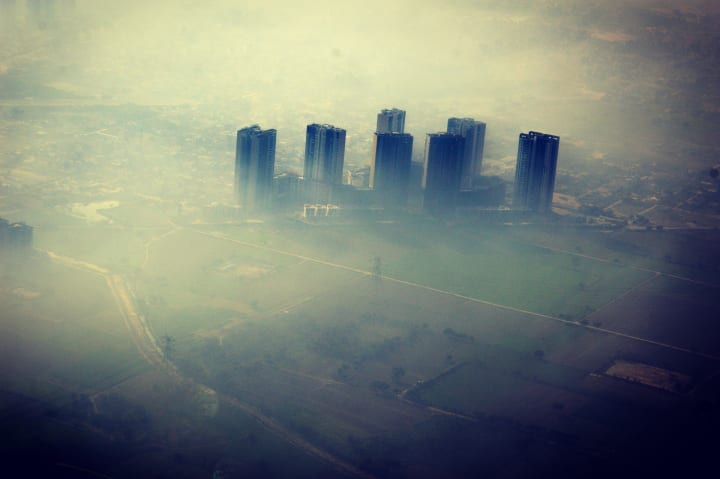
Covering 70% of the earth's surface, our oceans act as transport for heat from the equator to the poles which is key to regulating our climate and weather patterns. There is no question that our climate is suffering from change and the changes are, with greater and greater ferocity, causing us to suffer. With all the science in the world, there are still those that don't believe in climate change. Worse yet, there are those that don't believe that man has played such an integral part in that change.
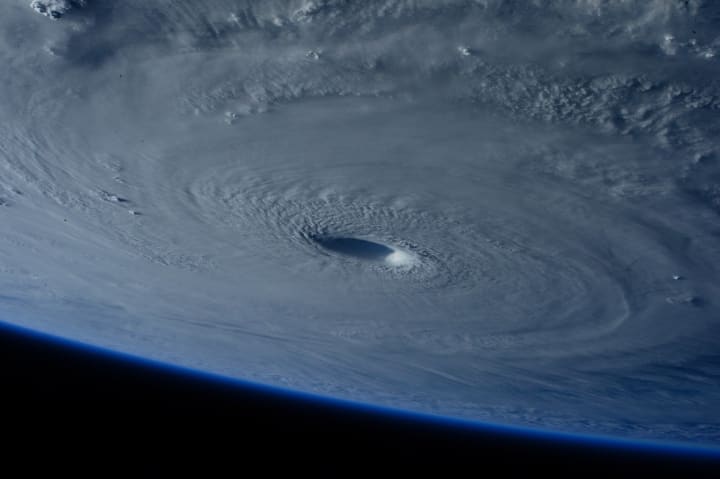
According to Katharina Buchholz from Statista, just looking back to 2020, there were a recorded thirty named storms, causing a record that created nine greek alphabet names. The Atlantic Basin saw the most Hurricane level storms since 2005, creating Laura in August which made landfall in Louisiana, as well as ETA and LOTA, which devastated Central American last November. As the number of major storms, storms reaching the categories of 3, 4, or 5, continue to remain higher, this year NOAA has already predicted at least twenty hurricanes will affect the Atlantic Basin during hurricane season. As warmer temperatures continue to climb and the ocean continues to bring the heat to the poles, these weather patterns could become unstable.
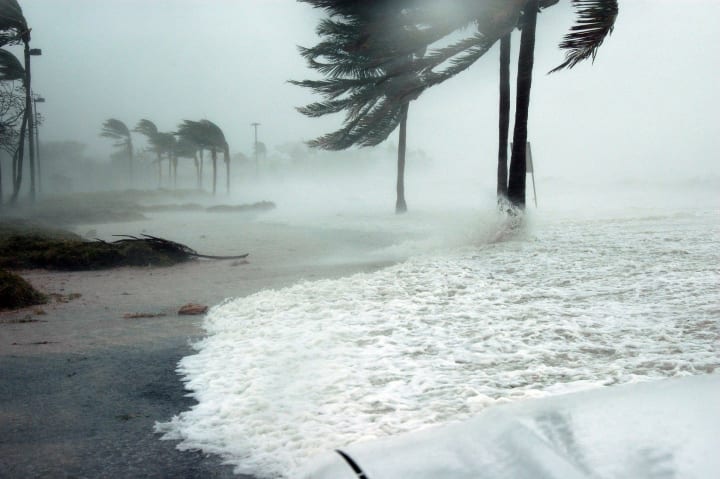
What does all of this cost us? After 2020 being so historically active, hurricane Laura cost 2.9 billion in damages. Last year climate disasters cost just the United States $95 Billion. Tragically, these events resulted in the deaths of 262 people according to the National Oceanic and Atmospheric Administrations' Office For Coastal Management.
We pollute, it's just that simple. We've been doing it for so long that I wonder if the fat cats sitting in their offices can do anything else. We can always change. To do that we have to understand what we are doing now, what we've done, and what we must do to be better. More importantly, as the dangerous consumers that we are, we can utilize our power to force the fat cats to change.

Coca-Cola, yummy. I'll admit it, I like Mountain Dew as well. Coke, PepsiCo, and Nestle' all have one thing in common leading up to 2019. They are amongst the biggest polluters in the world, again. If they're not going to change their bad habits, then they should be forced to pay for it. Coca-Cola being the worst of the bunch brings in about $36billion in yearly revenues while it is polluting in 37 countries. They've made the list for consecutive years of companies that are the highest polluters, clearly showing that they don't care about the future of our oceans, nor that of our world. Considering the number of plastics used in the production and distribution of their products, it's time to give Coke the boot until they decide to really tackle their carbon footprint. By holding them accountable, we will also diminish our carbon footprint. Check out breakfreefromplastic.org for more on the polluters and how to do your part to get rid of plastic polluters before its' too late for our children to enjoy the oceans, and our world.
Look for companies that are making the conscientious decision to participate in saving our environment, our oceans, and support those companies whenever possible.
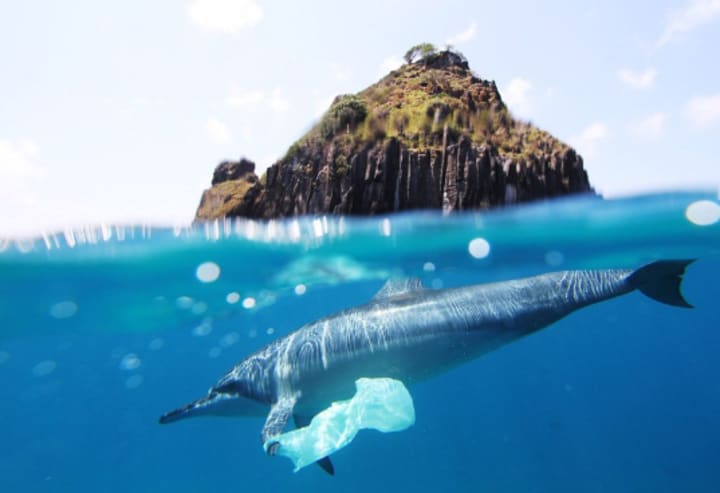
A plastic bag stuck on a dolphin's flipper. If that's a sad image then remember for a moment that the bag was something that a human, possibly you or I, didn't reuse or dispose of properly. Perhaps it was too much of a burden, I really don't know. There's an absolute solution to this, to keep it from happening again, and to put that bag to better use. I love the ocean, the lakes, the rivers, even the streams and creeks I come across. I've been fishing since I was a young boy. Now, those excess bags I collect from the grocery stores as I do my shopping, sit in a box and I take one with me when I go fishing. They make great trash bags. I don't fish off a boat, mostly because I don't own one. So, I'll be using those excess plastic bags, the very ones that can take up to forty years to degrade, to pick up recyclables that are left behind and clean up the shores where I fish. Two birds, one stone. Taking those nice little handles and wrapping them around each other will close the bag off and keep the trash inside, thus weighing it down so that it doesn't blow from a landfill into a water system somewhere.
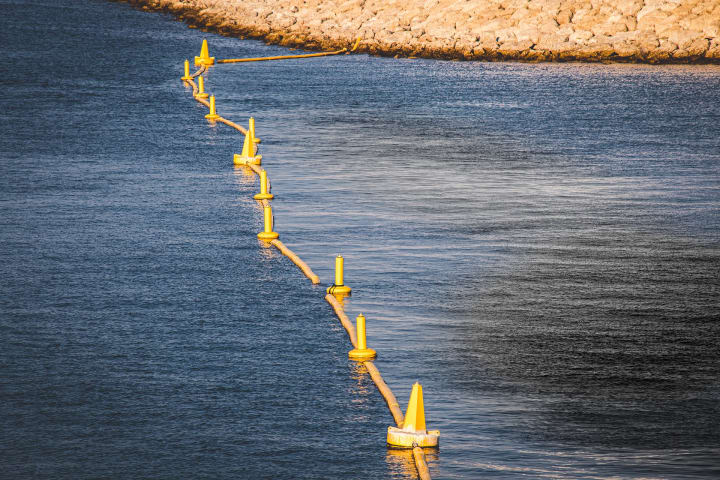
One thing that is very important, no matter how little you think you can do, is that you do something. Whether it be to volunteer for a beachside clean-up, to buy an electric car, to take more walks when you're not going anywhere, in particular, to stop using so many plastics, or focus on recycling, doing something is really better than the options. As our population has grown and technology abounds, there few things that humankind has really mastered when it comes to caring for ourselves and our fellow members of earth. It is late into the game and we're losing. There are so many good causes to support when it comes to climate change. Supporting the one that is capable of sustaining us for generations to come just makes sense. If you can't think of anything more to do than what you are already doing, then have a discussion with people around you.
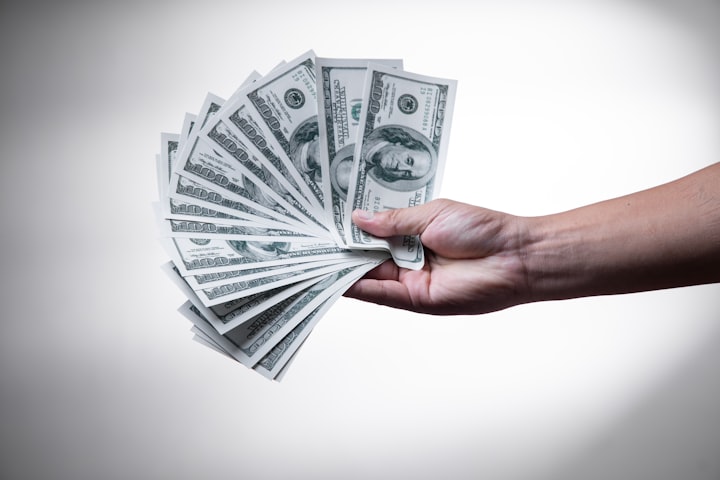
If it seems like an impossibly expensive mission to undertake, there is a choice. There's always a choice. Mission one is to save our oceans, reverse over time the 87% damage that we've caused to them, tackle global warming and climate change. Mission number two, something a little trickier. Start pinching those pennies folks, because the current price for one person to get to Mars, is an estimated 1.5 trillion dollars. Some say eventually it'll be half a million but do we have that kind of time? I'll continue to give up plastics, start doing more business with eco-friendly companies, do more walking whenever I can, participate in clean-up projects, and find more ways to make a difference here so that our world stays inhabitable.
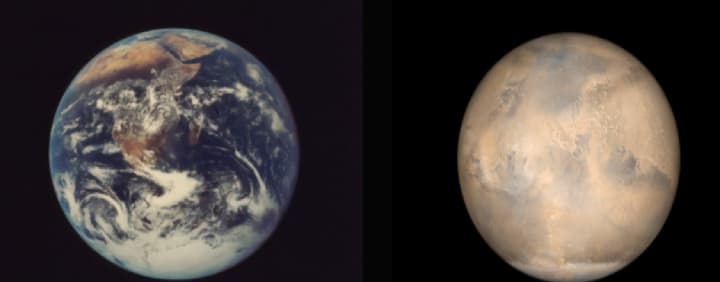
Please feel free to share this if you found it thought-provoking, entertaining or there were facts you didn't know, and check out any of my other stories at my profile below.
About the Creator
Jason Ray Morton
I have always enjoyed writing and exploring new ideas, new beliefs, and the dreams that rattle around inside my head. I have enjoyed the current state of science, human progress, fantasy and existence and write about them when I can.



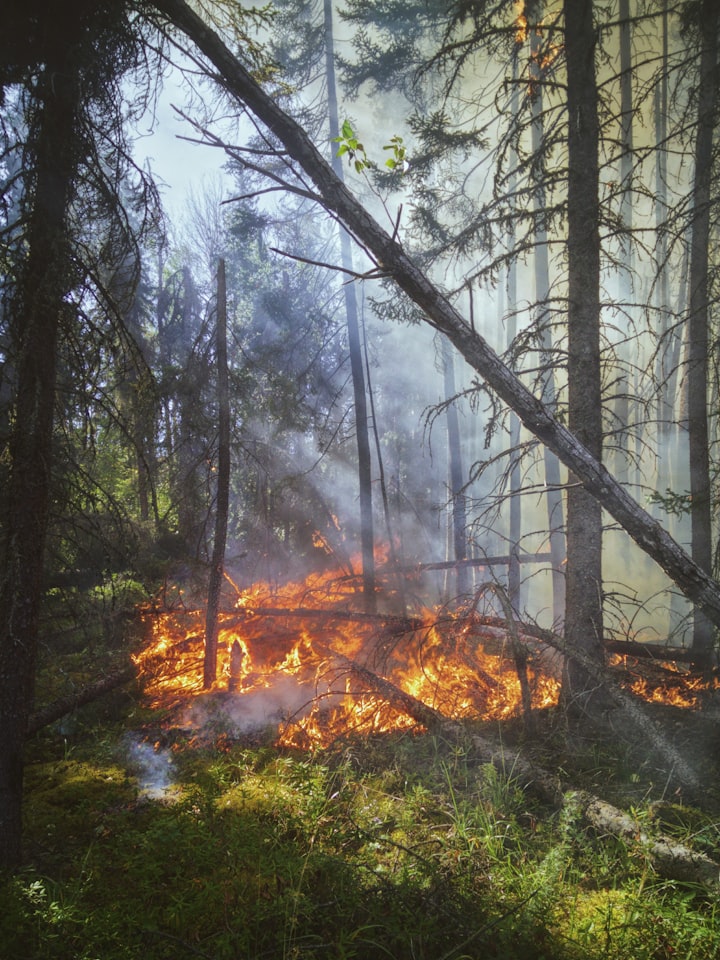


Comments
There are no comments for this story
Be the first to respond and start the conversation.